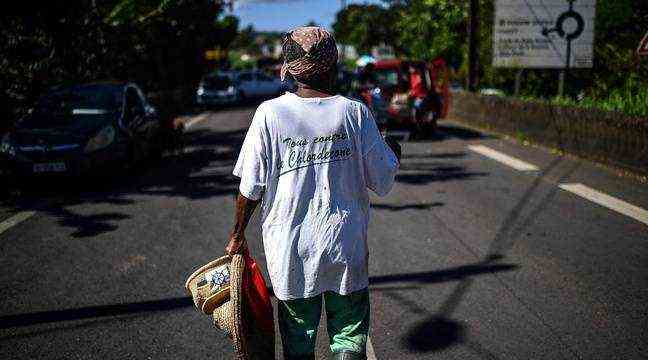Victory and relief in the West Indies, where the mobilization has never ceased. Prostate cancers linked to exposure to chlordecone, a pesticide widely used for decades in the West Indies, are now recognized as an occupational disease, according to a decree published in the Official Journal on Wednesday. “It was an expected decision, particularly in the West Indies,” said the Ministry of Agriculture, in a statement Wednesday morning.
Chlordecone, a pesticide banned in France in 1990, continued to be authorized in West Indian banana fields by ministerial dispensation until 1993, infiltrating soils for hundreds of years, while its toxicity and its persistent nature in the environment were known since the 1960s. More than 90% of the adult population in Guadeloupe and Martinique is contaminated by chlordecone, according to Public Health France, and the West Indian populations have one of the highest incidence rate of prostate cancer. raised to the world.
Emmanuel Macron’s commitment to an “environmental scandal”
The decree published on Wednesday makes it possible to create a “table of occupational diseases relating to prostate cancer caused by pesticides”, determining the conditions of treatment as well as the list of work likely to cause this pathology in agricultural settings. “The term” pesticides “refers to products for agricultural use and products intended for the maintenance of green spaces (phytosanitary products or plant protection products) as well as biocides and veterinary antiparasitics, whether or not they are authorized at the time of demand ”, according to the text.
Work usually involving exposure to pesticides is carried out “during the handling or use of these products, by contact or by inhalation”, “by contact with crops, surfaces, treated animals or during maintenance of machinery intended for to the application of pesticides ”, it is specified. This measure, intended to facilitate compensation for victims, is part of a series of actions carried out by the State in this extremely sensitive issue for years in the West Indies and described as an “environmental scandal” by President Emmanuel Macron.
From 1,000 to 19,000 euros per year of compensation
The publication of this decree was announced in the fall by the Minister of Agriculture Julien Denormandie. It gives the farmers concerned access to a fund created in 2020 and intended to compensate people with diseases linked to pesticides. In detail, all farmers or agricultural employees will be able to apply for this status on two conditions: that they have worked for at least ten years in contact with chlordecone, and that less than forty years have elapsed between their last exposure and the diagnosis of Prostate cancer.
These are the “generally accepted durations for this type of cancer”, recently explained the Ministry of Agriculture. People exposed under ten years old will still be able to apply to a regional commission, he said. Children exposed during pregnancy may also be compensated. “We cannot prejudge the number of victims upstream,” he insisted, indicating that at the individual level, compensation would represent between 1,000 and 19,000 euros per year for a farmer.

